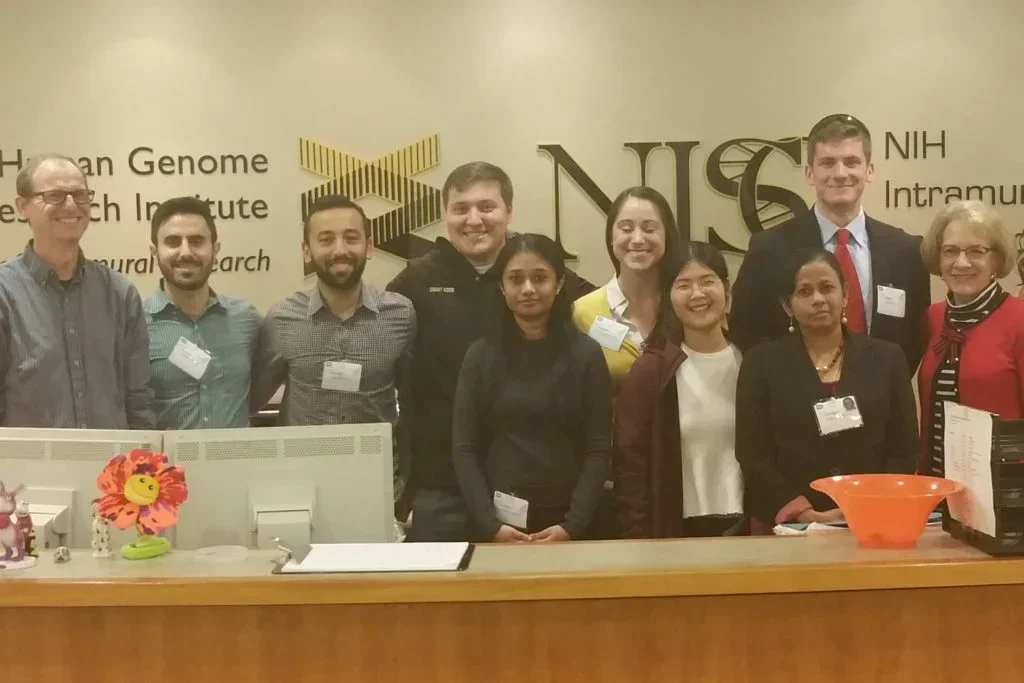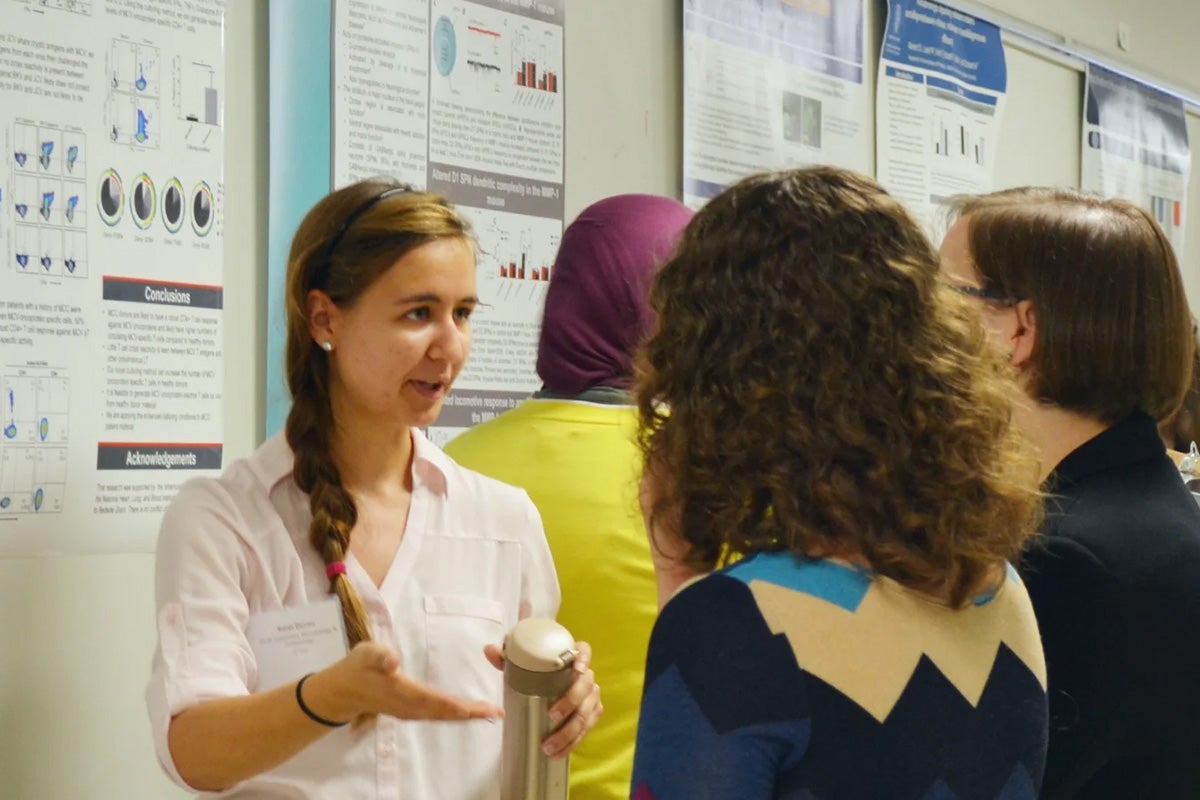Systems medicine is an emerging interdisciplinary biomedical field that turns data into personalized clinical treatments.
With advances in molecular biology and the sequencing of the human genome, biomedicine is becoming an increasingly quantitative science, requiring the understanding and use of complex computational tools. Systems medicine uses these tools to integrate data from across research disciplines – genomics, proteomics, metabolomics, transcriptomics and more – to identify the root causes of disease and develop personalized care that meets a patient’s individual needs.
Is Systems Medicine the same as Personalized and Precision Medicine?
Yes! The terms “systems medicine,” “personalized medicine” and “precision medicine” are being used interchangeably. Most often, personalized medicine is used to mean developing specialized treatments for an individual rather than a group. According to the Precision Medicine Initiative, precision medicine is “an emerging approach for disease treatment and prevention that takes into account individual variability in genes, environment, and lifestyle for each person.” This approach will allow doctors and researchers to predict more accurately which treatment and prevention strategies for a particular disease will work in which groups of people. It is in contrast to a one-size-fits-all approach, in which disease treatment and prevention strategies are developed for the average person, with less consideration for the differences between individuals.
How Systems Medicine Influences Our World

1. Personalized Treatment
Tailoring medical treatments to individual patients based on their genetic makeup, lifestyle, and environmental factors.

2. Early Disease Detection
Identifying biomarkers and patterns in data to detect diseases at early stages, enabling timely intervention and improved prognosis.

3. Drug Development
Accelerating drug discovery and development by modeling biological systems and predicting drug efficacy and safety.

4. Precision Oncology
Designing targeted therapies for cancer patients based on the specific genetic mutations driving their disease.

5. Healthcare Efficiency
Optimizing healthcare delivery processes and resource allocation through data-driven insights to improve patient outcomes and reduce costs.

6. Chronic Disease Management
Developing personalized strategies for managing chronic diseases like diabetes, hypertension, and cardiovascular conditions.

7. Systems Biology Research
Advancing our understanding of complex biological systems and disease mechanisms through interdisciplinary research and computational modeling.

8. Healthcare Innovation
Fostering collaboration between researchers, clinicians, and industry partners to develop innovative technologies and interventions.

9. Public Health Interventions
Informing public health policies and interventions by analyzing population-level health data and identifying trends and risk factors.

10. Patient Engagement
Empowering patients to actively participate in their healthcare through tools like wearable devices, mobile apps, and patient portals.

11. Preventive Medicine
Identifying individuals at high risk of developing certain diseases and implementing preventive measures to reduce the likelihood of disease onset.

12. Treatment Optimization
Optimizing treatment regimens and dosages for maximum efficacy and minimal side effects based on individual patient characteristics.

13. Data Integration
Integrating data from various sources, including electronic health records, genomic data and environmental data, to gain comprehensive insights into health and disease.

14. Healthcare Access
Improving access to healthcare services and specialized treatments through telemedicine, remote monitoring, and virtual consultations.

15. Monogenic Diseases
Identifying the specific genetic mutations, pathways, and genes responsible for monogenic disease and designing targeted therapies tailored to individuals’ genetic profiles.
Who Is Systems Medicine For?
Have you ever encountered or wondered about any of these scenarios?
- How can two people go out to dinner and have the same meal, and only one of them ends up in the emergency room with food poisoning?
- How could two boys with the same genetic mutation have such different degrees of disease, with one ending up in a wheelchair at a young age and the other remaining highly mobile?
- Why do some people never get Covid? Why do some people with Covid die, even though they don’t have any underlying comorbidities?

Do you want to change the way medicine is practiced? Do you want to carry out data-driven research that can help you understand and investigate the “Why” in the above scenarios? Do you want to help find the right treatment for the right person at the right time, as a physician or a researcher or a data analyst?
If you answered yes, then you are in the right place! The Georgetown University M.S. in Systems Medicine is a perfect fit for you.
Joining this program has been like becoming a part of a welcoming and nurturing family, and I wholeheartedly encourage aspiring students to consider the value that comes with participating in such a groundbreaking and transformative field.
Kylan Kelley (M.S. ’23)
What Our Alumni Say About Us
Systems Medicine at Georgetown
The Georgetown Systems Medicine program provides proficiency in computational sciences, data analysis, and the application of “‑omics” technologies to any biomedical or clinical challenge.
New tools for clinicians and biomedical scientists will continue to arise from the intersection of research across a variety of disciplines. As a leader in medical science and education, Georgetown University Medical Center is taking a leadership role in developing graduate and medical curricula and expanding research in this area.
Recognizing that success in this discipline will require unique training, Professor Sona Vasudevan established the first graduate program in Systems Medicine, which offers the unique educational experiences required for expertise in this growing field.
Joseph Loscalzo, M.D., Ph.D., Brigham and Women’s Hospital, Harvard Medical School
What Experts Say About Us
What Makes Us Unique
As the only program of our kind, we stand out for our focus as well as for the resources and opportunities we offer students.
Integrative Curriculum: Our entire curriculum is focused on the integration of computational sciences and “-omics” technologies, based on systems biology principles.

Practical Experience: Our program offers practical training components such as internships, research projects, and collaborations with industry partners, health care providers and leading scientists.
Facilities and Resources: Students enjoy access to specialized informatics facilities and to laboratories with cutting-edge technologies, computational resources and bioinformatics tools. They gain experience in applying computational tools and systems approaches to real-world scenarios and problems.
Faculty Expertise: Our faculty are world leaders who are highly accomplished in their respective fields. Their backgrounds include computational sciences, systems biology, policy, entrepreneurship, engineering, statistics, biomedical and clinical research.

Individualized Advising: As a Georgetown Systems Medicine student, you will get one-on-one attention from faculty and mentorship from the program director, who will personalize your academic journey and support you in meeting your career goals.
GPA Boost: If you are willing to work hard, you are guaranteed to get a great boost. The program director works with you to make sure this happens for you!
Career Prospects: Graduates choose a variety of career paths including medical school, PA school, nursing, Ph.D.s, research assistants, data analysts, bioinformaticians, clinical coordinators, curators, software engineers, consultants, regulatory and policy experts, and data scientists. They play specific roles in personalized medicine, biomedical research, pharmaceutical companies, health care consulting, and academia. Explore our alumni’s career outcomes.
What Our Alumni Say

Joining this program has been like becoming a part of a welcoming and nurturing family, and I wholeheartedly encourage aspiring students to consider the value that comes with participating in such a groundbreaking and transformative field. This program has been an incredible opportunity that I highly recommend to anyone looking to further their academic and professional aspirations.
Kylan Kelley (M.S. ’23)
What Experts Say

Systems medicine is a rapidly growing discipline that promises to identify key biological mechanisms, pathogenic processes, and therapeutic approaches to the complexity of human biology and disease. In conjunction with the related discipline of network medicine, systems medicine has already made considerable progress in meeting these key goals.
Joseph Loscalzo, M.D, Ph.D., Chair of Department of Medicine and Physician-in-Chief, Brigham and Women’s Hospital
In essence, systems medicine turns the conventional reductionist paradigm of biology and medicine on its head, recognizing the complex holistic interplay among many interacting molecular components that govern phenotype and pathophenotype and utilizing modern genomic and analytical mechanisms to dissect those complexities.
Recognizing that success in this discipline will require unique training, Professor Sona Vasudevan established the first graduate program in Systems Medicine, which offers the unique educational experiences required for expertise in this growing field. Since 2011, she has cultivated the growth of trainees in this discipline, populating programs in academics and industry as a result. Her efforts continue to be recognized internationally, as witnessed by the success of the recent International Conference in Systems Medicine that she organized at Georgetown. Professor Vasudevan’s efforts are both widely recognized and greatly appreciated, as the academic workforce needed to advance this discipline requires the commitment she demonstrates and rigor the program offers essential for success.